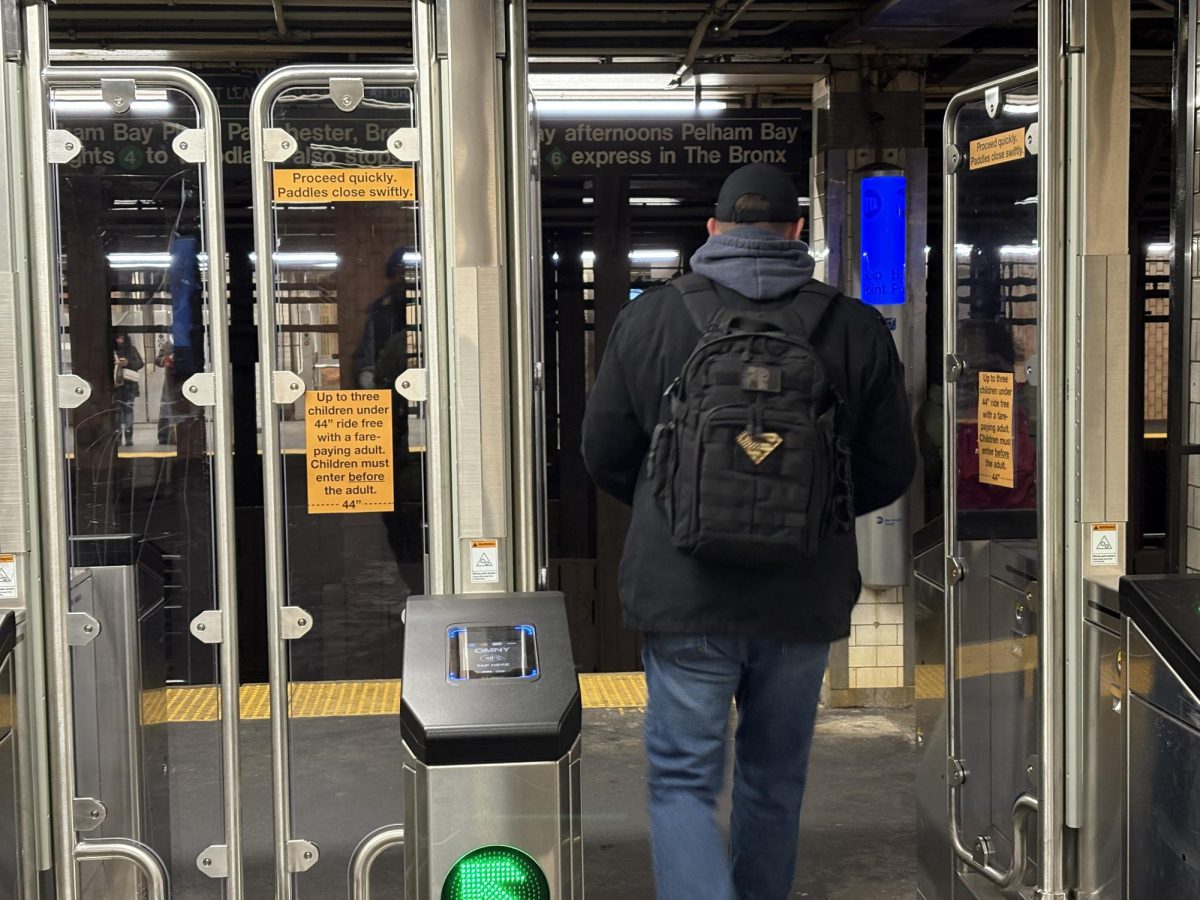CUNY students, faculty and staff rallied outside City Hall on March 23 to bring awareness to the budget cuts proposed by New York Gov. Andrew Cuomo and push for more funding. The rally was held the week before the April 1 budget deadline and was followed by the third annual “March in March” across the Brooklyn Bridge. The march was organized by the CUNY University Student Senate, which called for a tuition freeze, an increase in public funding and equitable contracts for adjunct professors.
The Professional Staff Congress also marched to represent the 30,000 CUNY adjunct professors who have been without a contract for more than a year.
Last December, PSC peacefully protested outside Baruch College’s Newman Vertical Campus while the Board of Trustees Meeting was held on the 14th floor of the NVC. PSC members demanded proper funding that’s necessary to pay competitive salaries to faculty and staff.
This time, PSC had a “Wake-Up Call” rally at 8 a.m. outside Cuomo’s office with a brass band, alarm clocks and noise makers as they chanted, “Tax the rich, not the poor. Stop the war on CUNY!”
The adjunct faculty also held a grade-in at Cuomo’s office on March 29 as they do not have an office space of their own in which they can grade papers.
Carly Smith, an adjunct lecturer in communication studies at Baruch, attended the grade-in in solidarity with PSC’s demands for $7,000 per course for adjuncts and full funding for CUNY.
In a statement to The Ticker, she expressed that she makes “under $3,500 per course, less than $28 thousand dollars a year.”
“I need to be there for my students at my best, and I can’t always do that when I’m not being paid to grade, write letters of recommendation, or meet outside of class. I’m here to tell Cuomo that paying CUNY faculty near-poverty wages disrespects teachers and students and damages our lives. CUNY faculty and students deserve full state investment in education. Adjuncts need a living wage of at least seven thousand dollars a course,” Smith said.
She explained that “students can get involved [in the Fight for 7K] through Baruch USG, CUNY USS and an organization called CUNY Rising” and said that “students are always welcome to join faculty and staff at PSC/CUNY actions; we fight for full funding for the whole system, and we oppose tuition hikes.”
PSC-endorsed newly elected Public Advocate Jumaane Williams, a Brooklyn College graduate who spoke in an open assembly.
He emphasized his involvement with CUNY saying, “The first time I was arrested for civil disobedience was as a student at Brooklyn College protesting tuition hikes. I recently joined student advocates once again to demand that Albany freeze tuition for CUNY students, increase CUNY’s budget and offer fair contracts for faculty and staff. With the budget due in just a few short days, our state legislature has no time to wait.”
Baruch’s Vice President of Legislative Affairs Navjot Kaur believes that with someone like Williams, who has such a large platform, his presence in the march played a large part in amplifying the issue.
USG President Radhika Kalani, who was also present at the march, explained that there is strength in numbers and that CUNY must stay organized together and show up to these marches and meetings to bring awareness.
“I always thought that asking government for money and rallying doesn’t do much because you’re just speaking to air. But seeing so many cameras facing us, passionate student leaders, organization leaders, teachers, parents, and government officials like PA Jumaane Williams all support us and talk about their own struggle stories made me realize that there is power in numbers and what we are fighting for is a critical issue,” Kalani said.
USS President Haris Khan spearheaded the march and spoke about the need to keep fighting “for more funding and making local and state legislators pay close attention to the growing plight of CUNY students,” Assistant Director of Academic Advisement Jennifer Harrington said in an emailed statement to The Ticker.
Khan shared that his “story is the story of many CUNY students.”
Mid-way through his college career, he lost his father, the family breadwinner, to cancer. His family relocated to Texas. He was able to stay in New York, however, to continue his education at City College through merit-based and opportunity-based programs such as SEEK and ACE. These same resources that helped him succeed in college are the frequent targets of budget cuts.
After the death of his father, Khan was “only allowed six sessions with a mental health counselor because of budgetary limitations, despite needing more help with navigating the sudden changes” in his life.
“The needs of CUNY students are not mutually exclusive to the needs of New Yorkers,” Khan said. “Rather than short-changing higher education, Albany leaders should support the university, whose mission is synonymous with the state’s mission of providing all New York families a pathway to a better life.”
This article has been updated to reflect a missing citation for a quote given by Jennifer Harrington.








